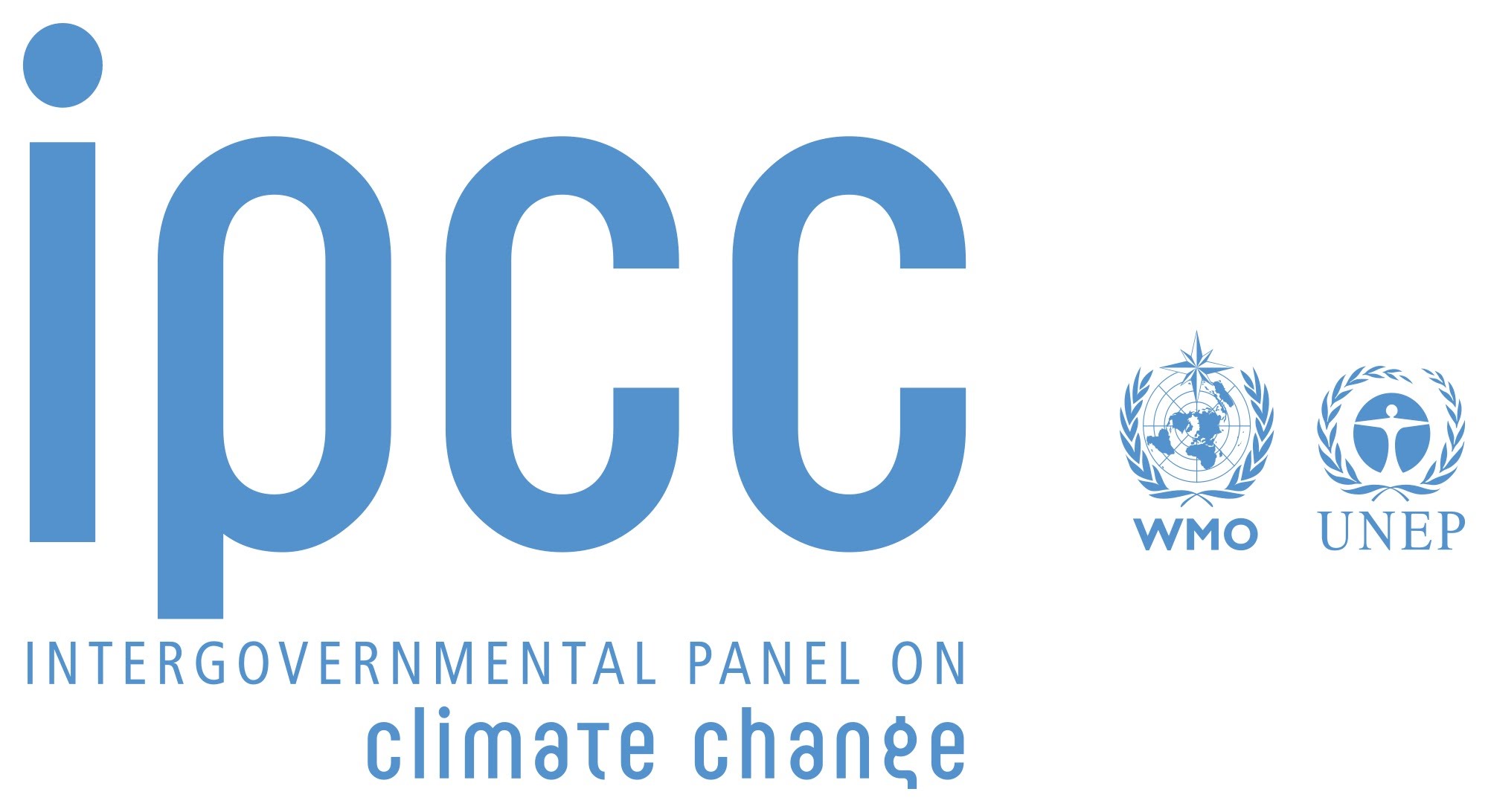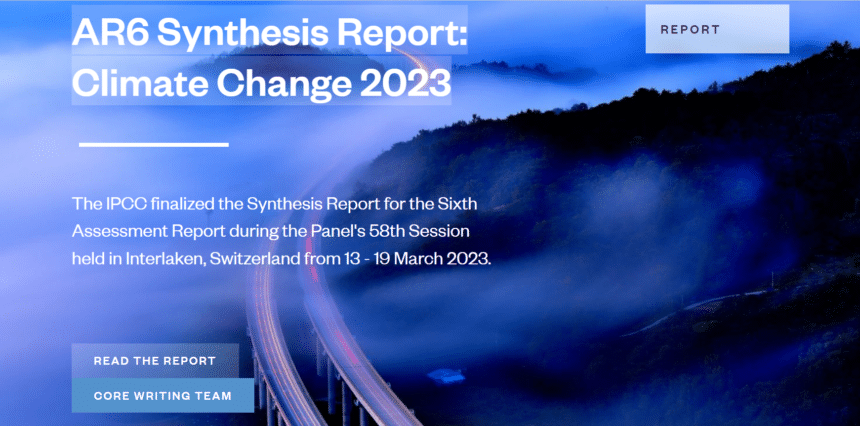The Intergovernmental Panel on Climate Change (IPCC) is the scientific group assembled by the UN to monitor and assess all global science related to climate change, and for 35 years has been producing ‘Assessment Reports’ of knowledge on climate change, its causes, potential impacts and response options. It has also now produced six ‘Synthesis Reports’ summarising the findings from each cycle of Assessment Reports. March saw the release of the IPCC Sixth Synthesis Report- the fourth and final report of the Sixth Assessment Report Cycle (AR6), and the last Synthesis Report that will be produced before 2030. It is intended to inform the 2028 Global Stocktake by the United Nations Framework Convention on Climate Change, where countries will get together and review their progress in tackling the climate crisis.
The Synthesis Report synthesises information from all reports that have been released in the IPCC’s sixth assessment cycle since the Fifth Synthesis Report in 2014. The three assessment reports released in that time have covered the physical science of the climate crisis including observations and projections of global heating, the impacts of the climate crisis and how to adapt to them, and ways of reducing greenhouse gas emissions. There were also three other shorter IPCC reports, on the impacts of global heating of more than 1.5°C above pre-industrial levels, the effects of climate change on land, and effects on the ocean and cryosphere. By compiling all the research and findings on all of these topics, the Synthesis Report aims to provide a comprehensive overview on the state of the world’s knowledge of climate, covering all of the latest climate science.
Though the report is a condensed version of all findings from 8 years of IPCC reports, it is still nearly 8,000 pages, and it’s a difficult read, described by UN Secretary-General António Guterres as “An atlas of human suffering and a damning indictment of failed climate leadership”. Since it is a synthesis, none of the science in report is new, so it includes the warnings we have been hearing for a few years now, that the planet is reaching “irreversible” levels of warming, with catastrophic impacts becoming inevitable, and that we must take drastic action immediately to avoid disaster. It also explains in detail the devastating consequences that continually rising greenhouse gas emissions will have on the planet and people. If you don’t have time to read through 8000 pages, I’ll try to briefly summarise some of the key takeaways here.

Firstly, worryingly, the report finds that the impacts of climate change on people and ecosystems are already more widespread and extreme than anticipated, and future risks will only continue to increase with every degree of warming. Secondly, and perhaps obviously, the current global-warming of 1.1°C has caused unparalleled changes to Earth’s climate, with these climate changes now occurring in every region of the world, from vanishing sea ice to rising sea levels to extreme weather events, leading to the destruction of ecosystems, extinction of species, and loss of people’s homes, livelihoods, and even lives. Since 2008 extreme floods and storms have displaced 20 million people a year.
However, the report also focuses on hope for the future, highlighting what policies and actions can be implemented to avoid intensifying risks from further heating. While our window to address the climate crisis is closing fast, the report confirms that we can still secure a livable future if we take action now and create systemwide transformations. The most significant way to mitigate climate damage is to rapidly shift away from burning fossil fuels by shutting down fossil fuel infrastructure, investing in clean energy, and scaling up renewable energy sources like solar and wind. Other ways can include worldwide reduction of meat consumption, improvement of agricultural practises, stopping deforestation and restoring degraded land. The report also stresses that carbon removal technologies are essential, which can include sequestering and storing carbon in trees and soil, or continuing to develop technologies that are able to remove carbon dioxide from the air.
Another focus is the importance of adaptation measures in creating climate resilience (though sadly some climate impacts are already so severe they cannot be adapted to). However, drastically more climate finance will be needed over the next decade to effectively scale these measures. Climate policies in at least 170 countries now consider adaptation, but many places have not progressed from planning to implementation, often due to lack of funding. One method highlighted is ecosystem-based adaptation- collaborating with indigenous peoples and local communities to develop climate adaptation measures that can also improve food security, bring economic benefits, improve health, protect biodiversity and enhance carbon sequestration. These measures include the protection, restoration and sustainable management of ecosystems, for example mangroves which naturally protect from flooding, as well sustainable agricultural practices like integrating trees into farmlands and increasing crop diversity.

How will the University be responding to the IPCC Sixth Synthesis report?
Although sobering to read, the contents of the IPCC synthesis report have come as no surprise to the HE sector. The publication of this report comes just weeks after the publication of an HE sector proposal on ‘Accelerating the UK Tertiary Education Sector towards Net Zero’ which sets out the priorities for us in mitigating and adapting to climate change. This report and proposals for developing our net zero plans were discussed by the University’s Sustainability Steering Group at the end of February and our various streams of activity in this area remain in progress.
Our target will remain as 2040 for our scope 1 and 2 emissions which is in line with the IPCC report recommendations. We are however accelerating our efforts in improving how we measure and report our emissions and in particular our scope 3 emissions. A working group has been established who will be following a sector led framework to develop a carbon accounting methodology which will inform our next steps.
However, as the IPCC synthesis report makes clear, Climate Change is now and will continue to impact the University of Kent and we need to ensure that our decision making is done through a climate lens to ensure that our campus, our buildings, our people and our practices are resilient to the impacts of climate change.
